US Denies Iranian Claims Regarding Agreement To Swap Prisoners
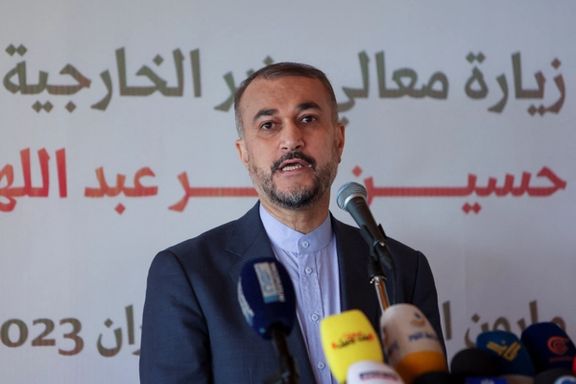
The United States has once again denied a claim by the Iranian foreign minister Hossein Amir-Abdollahian over an agreement regarding the exchange of prisoners.

The United States has once again denied a claim by the Iranian foreign minister Hossein Amir-Abdollahian over an agreement regarding the exchange of prisoners.
Amir-Abdollahian, who visited Lebanon on Friday, alleged in a press conference that the Islamic Republic and the United States had agreed to exchange prisoners "13 months ago".
"They introduced an English diplomat lady as a representative. Regarding how to exchange prisoners, an agreement was signed," added Amir-Abdollahian.
However, hours later, the Deputy Spokesperson of the US Ministry of Foreign Affairs said he had no new update to offer in this regard.
“Any comment by Iranian officials …is inaccurate. I would say that most things that come from the Iranian regime I would take with a grain of salt,” Vedant Patel told a press briefing late on Friday.
The Biden administration officials in March also categorically denied Iranian claims that a prisoner swap deal had been reached.
“Statements from Iranian officials that a deal regarding the exchange of prisoners has been reached are another especially cruel lie that only adds to the suffering of their families,” State Department former spokesperson Ned Price told CNN.
A prisoner exchange deal always seemed to be intertwined with a nuclear agreement with the US, but long negotiations in 2021 and 2022 to restore the JCPOA accord limiting Iran's nuclear program failed to reach fruition.
Iran has been accused by Western governments and human rights organizations of detaining Western citizens as hostages to extract concessions.
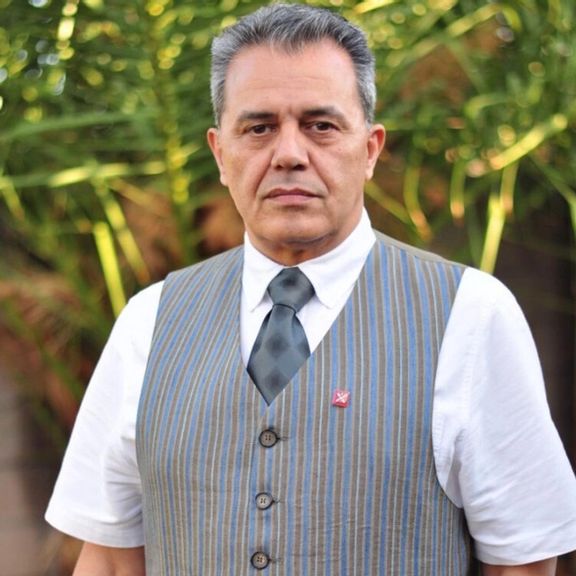
The European Union has condemned the Iranian judiciary's decision to confirm German-Iranian citizen Jamshid Sharmahd's death sentence.
In a statement on Friday, the EU urged the Islamic Republic to refrain from carrying out Sharmahd's death sentence, repeal it and ensure he receives the basic rights to which he is entitled under international law without delay.
“The death penalty violates the inalienable right to life enshrined in the Universal Declaration of Human Rights and is the ultimate cruel, inhuman and degrading punishment,” reads the statement.
Earlier this week, Iran’s judiciary approved the death sentence of Sharmahd, for alleged involvement in terrorism.
Masoud Setayeshi, the spokesman of the judiciary, announced the news of the high-profile case in a press conference on Wednesday.
The news of Sharmahd’s kidnapping in Dubai and transfer to Tehran by regime agents was first released in August 2020. He was accused of heading a pro-monarchist group, Kingdom Assembly of Iran, behind a deadly 2008 bombing and planning other alleged attacks across the country.
Based in Los Angeles, the little-known group seeks to restore the Iranian monarchy that was overthrown by the 1979 Islamic revolution. It also runs pro-Iranian opposition radio and television stations abroad.
Since his arrest, human rights organizations have warned of 67-year-old Sharmahd’s deteriorating health. Sharmahd, who also holds US residency, has been held in solitary confinement and was denied an independent attorney and fair legal procedures. In February, Iran's judiciary sentenced him to death.
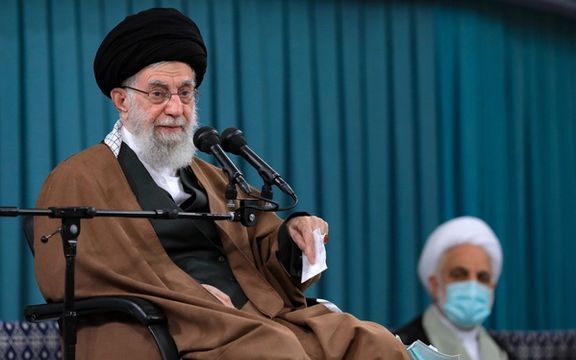
Unemployment is the cause of all social ills, Iran’s ruler Ali Khamenei told a group of handpicked workers Saturday, while at least nine activists were arrested.
Strikes have spread in Iran this week, with workers in more than 100 businesses and plants demanding better pay and work conditions, as Iran’s economy reels under US sanctions, government mismanagement and corruption.
Khamenei, who is the ultimate authority in deciding about an agreement with the United States over Iran’s nuclear program and end sanctions, emphasized the urgency of boosting employment and ending corruption.
However, under tough financial pressures, due to US oil export sanctions, Khamenei’s call for lowering unemployment remains more of a slogan. The same applies to corruption, when under his watch the Revolutionary Guard and religious foundations have monopolized the economy and overwhelming government control has led to the emergence of embezzlements and nepotism by officials.
“I have reached the conclusion that the cause of most [social] ills is unemployment. Addiction, corruption, crime, divorce, and the destruction of families are related to unemployment,” the 83-year-old autocrat said.
His enumeration of Iran’s deep social problems was also a rare admission by Khamenei, who usually praises the achievements of the Islamic Republic, ruled by him for 34 years of its 44-year existence.
While praising workers as the backbone of the country and insisting that they are loyal to the regime, his security forces Friday arrested at least nine labor and teachers activists.
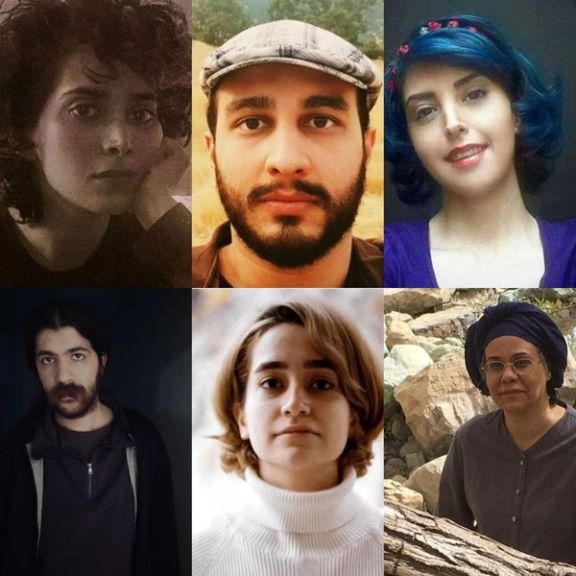
Several teachers’ union activists were meeting at the home of their spokesman Mohammad Habibi when security agents stormed the residence and arrested them. They were taken to Tehran’s notorious Evin Prison, where most political prisoners are kept.
Habibi himself was arrested April 5, just two months after he was released from a previous detention.
He has been persecuted for years, with agents storming his home in 2017 and confiscating his electronic devices. In recent years, he has been twice terminated from his teaching position under the pretext of “unjustified leaves of absence,” while he was in prison.
Khamenei railed against corruption in his speech, saying that if an official does not have the courage to fight corruption, he also does not have will to stand up to “foreign bullies.”
In another rare admission, he said some workers’ protests were justifiable. “Protests against late payment of wages, protests against wrong privatization…these are helpful in informing the regime and the government,” about the prevailing condition in the country.
Khamenei not only faces labor unrest, but also the wrath of many Iranians who see him as ultimately responsible for rising poverty and more restrictions on individual freedoms. Protesters who occupied the streets in 2022 often shouted harsh slogans and even insults at Khamenei.
His hardliner loyalists who control all three branches of government since 2021 have proven inept in making a dent in the economic crisis and the rising political opposition to the regime. Khamenei must know by now that his regime’s legitimacy has been badly damaged.
In an attempt to show that he is on the side of ordinary people, Khamenei said not paying wages on time “is oppression of workers.” Similarly denying them health insurance and job security are also acts of oppression.
He praised the workers for their loyalty to the regime, but reiterating his usual argument about a foreign conspiracy, he said that “foreign ill-wishers” tried to pit the workers against the regime, “but they stood against that, and this is very important.”
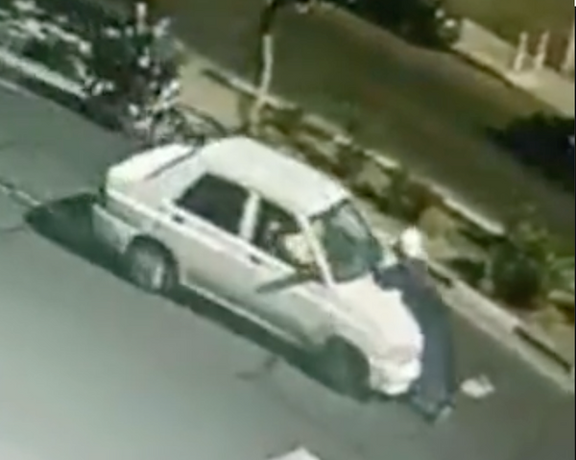
Media close to the Revolutionary Guard say two more clerics were targeted by a driver in the Iranian religious city of Qom after a similar attack on Wednesday.
A vehicle ran over the two clerics injuring them Saturday morning while the driver came out of his vehicle and stabbed one of them, Sabereen News, an Arabic and Persian Telegram channel close to the IRGC Qods Force reported.
The assailant then attacked the police officers and wanted to disarm and take their weapons but was arrested by the agents, added the source.
This is the third attack on clerics within the past few days in Iran. Tehran police on Thursday announced a manhunt was underway to find another driver in the attempted murder of a cleric in the capital.
After parking his car in Marzdaran Boulevard in Tehran at 9 am on Wednesday, the 35-year-old cleric was the victim of a car ramming, police said in a statement.
The culprit fled the scene and the cleric's health status has not been disclosed.
As another sign of rising anger against clerics, a bank guard shot and killed a senior cleric in northern Iran on Wednesday, according to CCTV footage.
Abbas-Ali Soleimani was the most senior clergyman killed in months of unrest that has rocked the country since the death in custody of Mahsa Amini.
In surveillance footage shared widely by Iranian media, the shooter was seen calmly approaching the cleric carrying a firearm, milling around briefly, and then shooting him.
Protesters have been targeting clerics in Iran's latest protests. Since the 1979 revolution, the clergy have gained increasing power, but discontent has risen in recent years, particularly amid waves of protests over economic, political, and civil rights issues.
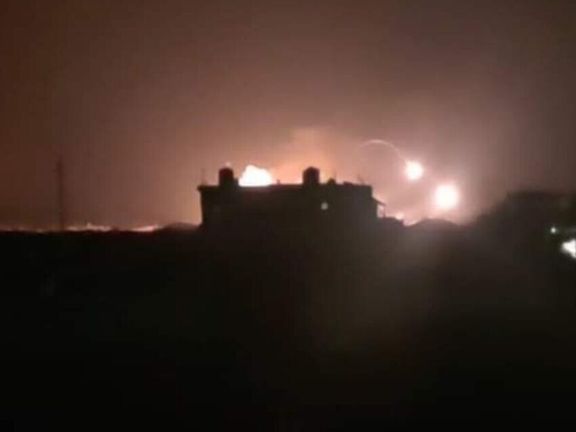
An Israeli air attack near the city of Homs hot Iranian targets early Saturday, while Syrian state media reported that some missiles were intercepted.
SANA, Syria's state news agency, reported that three civilians were wounded in Saturday's attack, as well as a number of fuel tanks and trucks caught fire and burned.
Meanwhile, Syrian Observatory for Human Rights, based in the United Kingdom, reported that Israeli missiles fired from warplanes destroyed a Hezbollah ammunition depot near the Homs airport.
The observatory said this was the second time Israel has targeted the site in a month.
Iran intervened in the Syrian civil war as early as 2011 to defeat a rebellion against strongman Bashar Al-Assad.
Israel has been attacking what it has described as Iran-linked targets in Syria since 2017, to prevent Islamic Republic forces getting entrenched near its northern borders and weapons reaching the Lebanese Hezbollah.
Israel attacked targets in Syria hitting two bases where Iranian forces operate in Homs province earlier this month killing at least two Iranian officers.
Syria’s defense ministry announced the attacks without providing much detail, while Western intelligence sources told Reuters the strikes hit a series of air bases in the central region of the country where Iranian forces are based.
Iran says its officers serve in an advisory role in Syria at the invitation of Damascus. Hundreds of Iranian forces and thousands of proxy militiamen including senior officers have been killed in Syria during the war.
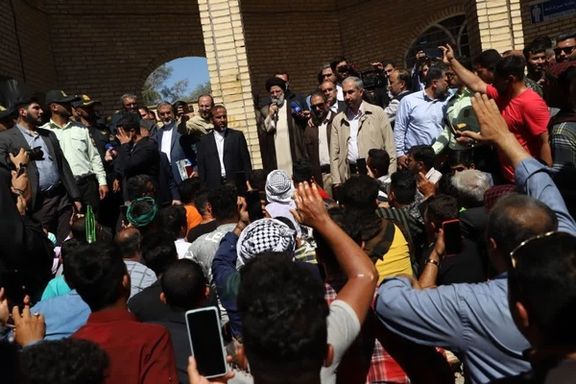
Iranian President Ebrahim Raisi's visit to the Khuzestan province was mired with a lackluster welcome at Haft-Tappeh Sugarcane complex and condemnation by mother of a child killed during protests.
Raisi, who arrived in the province on Thursday,tried to use his trip to Khuzestan as a publicity stunt but popular anger at the government's poor economic performance and repression led to a backlash.
According to media channels affiliated with the Haft-Tappeh complex, Raisi was snubbed by the workers who are among thousands who are on strikes across the country.
Strikes by Iranian energy, petrochemicals and steel workers as well as other sectors are gaining momentum with new plants joining the nationwide industrial action this week.
Strikes are nothing new for the Haft-Tappeh workers as they have staged numerous rounds of action after the privatization of the complex in 2015. Workers have been protesting for deteriorating working conditions and late payments of wages since 2017, leading to periodic weeks-long strikes in 2017, 2018, 2019 and 2020 over unfulfilled promises by officials.
Workers at the once thriving sugar mill reportedly boycotted Raisi's visit. Turnout for his reception ceremony was so low that authorities had to transfer security forces and members of Basij – a paramilitary volunteer force working under the Revolutionary Guards – from the nearby cities such as Shush to create a crowd for the president, journalist Roozbeh Bolhari cited a channel of Haft-Tappeh workers.
The efforts turned out to be ultimately in vain as the city’s officials could not gather enough people to be able to take wide angle shots from the ceremony and were forced to use closeup images at the end.
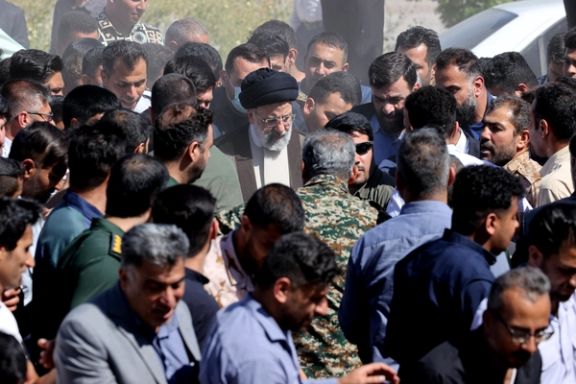
The company has at least 5,700 formal and contract staff but in the photos and videos of Raisi’s speech among the workers there are hardly more than 50 people apart from the security forces and the president’s entourage, which included more than 10 ministers of his cabinet as well as several deputies. According to the worker' social media channel, about 20 young people who were not employed in the company were lured into the crowd with promises of employment.
State media tried to portray the visit to Khuzestan as Raisi’s response to letters by the workers of the company who had called for better work conditions and salaries at par with the rising prices.
The aim of the visit was obviously propaganda as Raisi toured industrial centers in the province, telling people that he is there to see whether or not his orders given during the previous visits have been implemented. It was the seventh time that Raisi visited the province since he took office in 2021, and he said during his speeches in the provincial capital Ahvaz that “If necessary, I will travel to the province 70 times to solve its problems.”
Addressing the people of Andimeshk, he said, “Today, you people should know that despite all the sanctions and threats by the enemy, with your help, the movement towards progress and independence of the country, especially economic independence, continues.”
However, a large number of the province’s citizens criticized the visit on social media, trending a hashtag that is roughly translated as the province is thirsty for action, implying that they are fed up with propagandistic gestures.
The grievances of the people include lack of drinking water in the province, suffocating air pollution, projects that have been inaugurated but never fully implemented, and general poverty in a province that produces almost all of Iran's oil.
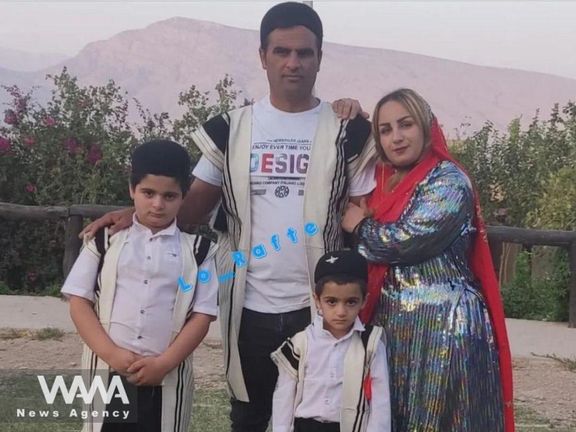
A large number of users sarcastically tweeted that “Mr. President, welcome to the most polluted city of the world!”
In reaction to Raisi’s visit, Zaynab Molaei-Rad, the mother of ten-year-old Kian Pirfalak, who was shot dead by plainclothesmen during protests on November 16, 2022, in one of the cities of the province, slammed the president. "This is the land of the brave. It takes a big heart to step here. Lest a vulture enter here on false pretext and promise, we will clip its wings," she said on Instagram.
The family car carrying Kian, his parents, and three-year-old brother Radin was targeted by plainclothesmen in Izeh, a town of around 100,000 in the east of the oil-rich province. Kian’s father was also seriously wounded in the shooting and is still in hospital. Authorities claim the family car was attacked by “terrorists”.